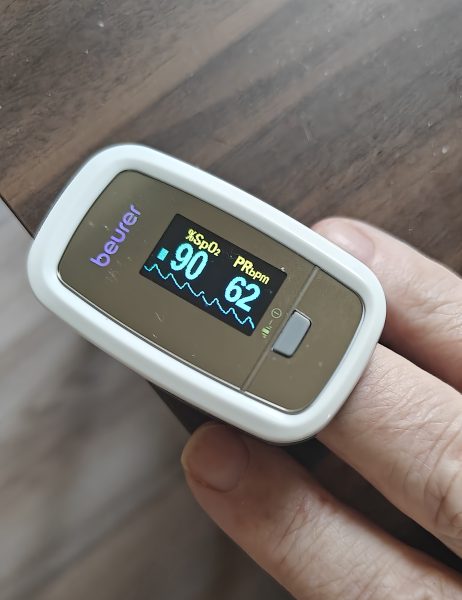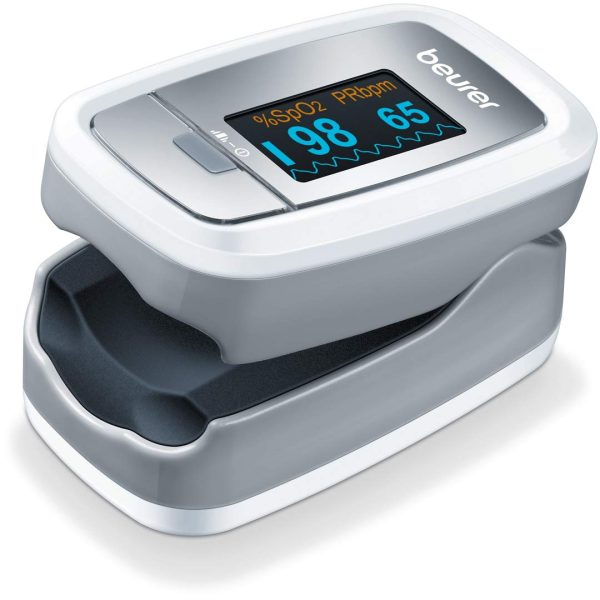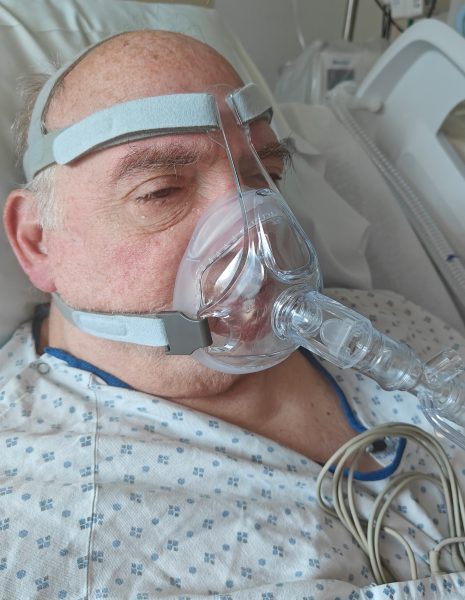Sometimes, life has a way of throwing us into situations where the unexpected happens, and we’re left marveling at the seemingly small decisions that end up making all the difference. That’s exactly what happened to my husband and me recently, and it’s a story that I feel compelled to share—not just because it’s a testament to the importance of being prepared, but because it’s a story that could potentially save your life (or as in my case, the life of someone you love).

Oplus_1179682
Earlier this year, I had the pleasure of working with Beurer, a brand known for its personal and at-home medical equipment. At the time, I thought it was just another exciting opportunity to collaborate with a great company, learn something new, and share valuable information with all of you. I have liked their products since I first discovered them. I use their exfoliating cleansing shower brush every day. It’s a nifty brush that is rechargeable and makes me feel pampered, so when they asked me to be part of their virtual event for Women’s Health Month, specifically focusing on the digitization of women’s health I jumped at the chance. It was an opportunity I was thrilled to be a part of. I attended an insightful session where I learned so much about monitoring our health, particularly in the context of women’s unique health needs.
As part of the program, Beurer sent me a blood pressure cuff and a pulse oximeter. At the time, I thought these were great tools to have on hand—after all, it’s always good to keep an eye on your health, especially as we age. Little did I know that these devices would soon play a critical role in a life-or-death situation.
A little over two weeks ago, the unthinkable happened. My husband, who had been dealing with a persistent cough, suddenly took a turn for the worse. What started as a typical coughing fit quickly escalated. Within minutes, he was gasping for breath, struggling to get air into his lungs. His face was pale, and there was a look of sheer panic in his eyes as he told me he could barely breathe.

In that terrifying moment, my mind flashed back to the session I attended with Beurer. I remembered the pulse oximeter they had sent me and the importance of monitoring oxygen levels. Without wasting a second, I grabbed the device, slipped it onto his finger, and watched as the numbers on the screen confirmed my worst fears. His oxygen saturation level had dropped to 80%. For those who might not know, a healthy oxygen level typically ranges between 95% and 100%. Seeing that number, I knew we were in serious trouble.
Thanks to what I had learned from Beurer, I didn’t hesitate. I knew that we needed to get him to the emergency room immediately. And thank goodness we did. As it turns out, my husband wasn’t just dealing with a bad cough—he had gone into respiratory failure. His lungs weren’t effectively expelling carbon dioxide, which meant it was building up in his bloodstream. This accumulation of CO2 had led to hypoxia, a dangerous condition where the body isn’t getting enough oxygen. If left untreated, hypoxia can cause organ damage or even be fatal.

The doctors acted quickly, placing him on a machine to help him breathe, taking CO2 readings, X-rays, and more. He spent nine long days in the hospital, fighting to stabilize his condition. Those nine days were some of the longest and most stressful of my life, filled with fear and uncertainty. But as difficult as it was, I couldn’t help but think back to that little pulse oximeter and how it had been the key to getting him the help he needed in time.
Now that my husband is home and recovering, life has taken on a new rhythm. We measure his CO2 levels multiple times a day, using that same pulse oximeter to ensure that his oxygen levels are where they need to be. It’s become a routine that brings us both some peace of mind. But beyond that, this experience has changed the way I think about health and the tools we have at our disposal.
I’ve always believed in the value of the work I do as a blogger and content creator, but this experience has reinforced just how important it is. The collaboration with Beurer was more than just another campaign—it was a lifeline. And by sharing this story with all of you, I hope to impress upon you the importance of being prepared and having the right tools at hand.
We often think of medical devices as something for people with chronic conditions or specific health concerns. But as I’ve learned, these tools can be lifesavers for anyone, at any time. Having that pulse oximeter on hand, and understanding how to use it, made all the difference in a moment of crisis.
Looking back, it’s incredible to think that a simple blogging campaign might have saved my husband’s life. It’s a reminder that the work we do, the opportunities we take, and the knowledge we gain can intersect in ways we never expected. And sometimes, those intersections are nothing short of miraculous.
So, if there’s one thing I hope you take away from my story, it’s this: be prepared. Whether it’s keeping a pulse oximeter in your home, learning about your health, or just staying informed, these small actions can have a huge impact. You never know when you might find yourself in a situation where that knowledge, that tool, could save a life—maybe even the life of someone you love.
Thank you for letting me share this story with you. I hope it resonates, and I hope it encourages.
- This under $30 device was the key to my husband being here. It costs under $30 on Amazon. I hope that my sharing helps you be prepared.
- We also have been monitoring his blood pressure with the Beurer Blook Pressure Cuff as the doctor ordered.

